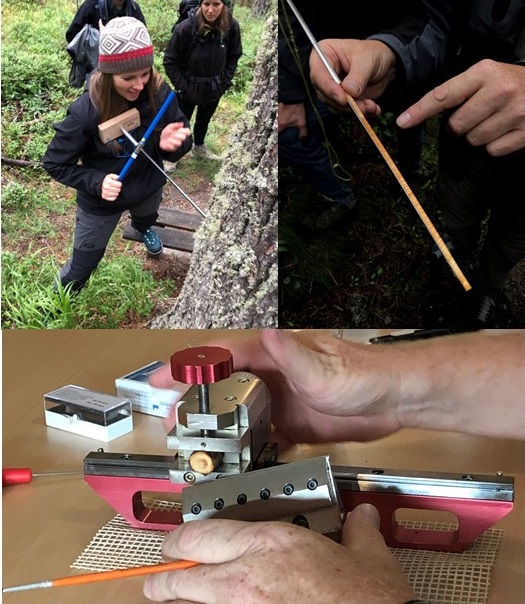My PhD is part of a larger funded multi-disciplinary project, the VIKINGS project, which aims to understand how large volcanic eruptions in the 6th century impacted climate and environment in Scandinavia. The project consists of climate modellers, tree-ring experts, lake sedimentologists and archaeologists.
In the project, I focus on using lake sediments to see how climate and environment has changed over time in the areas surrounding the lake. Material surrounding the lake, like leaves, pollen from plants, clays or sands are continuously washed into the lake. Which type of material that is eventually deposited on the lake floor is often controlled by climate. Over time these deposited materials build on top of each other to create a timeline of past changes. But, before the sediments - these archives of past changes - become useful, we need to know the age (chronology). Therefore, as part of my PhD, I decided to attend a course on advanced geochronological methods.
One of the best intensive courses for PhD students on geochronology in Europe is the International Geochronology Summer School (IGSS) hosted by ETH in Zürich every fall. A strength of the school is that it gives an in-depth and hands-on experience with a range of geochronological methods while giving access to top scientists in each field. This year the course was held at the Morteratsch Glacier in the Eastern Alps. Through seminars combined with field trips, we learned about the many ways geochronological methods could be used to help understand the timing of climatic and environmental events. The methods learned have since the course been vital to my PhD work.
- Eirik G. Ballo, CEED, UiO
